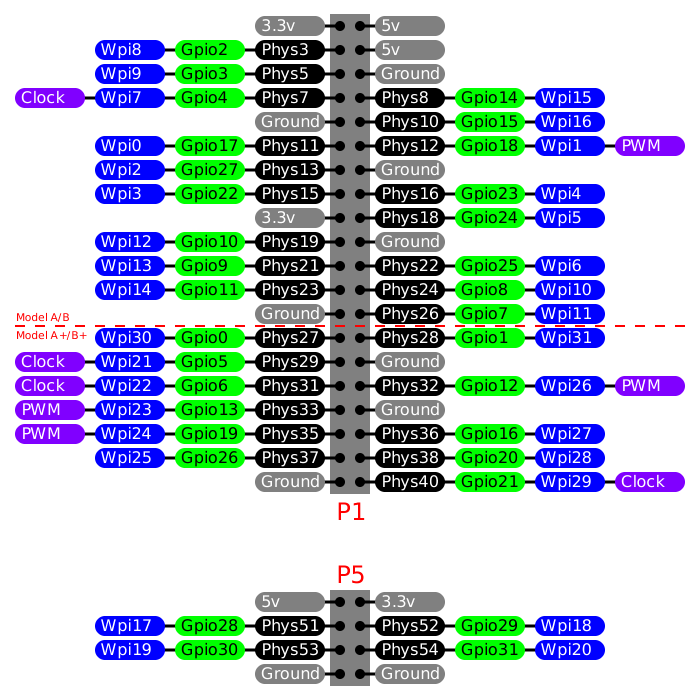wiringPi: Access GPIO pins on Raspberry Pi via wiringPi library
This is a Haskell binding to the wiringPi library, which allows you to interface with the GPIO pins on the Raspberry Pi. Unlike some other solutions for using the Raspberry Pi's GPIO pins, wiringPi provides access to more advanced features, such as enabling the internal pull-up or pull-down resistors.
[Skip to Readme]
Downloads
- wiringPi-1.0.1.1.tar.gz [browse] (Cabal source package)
- Package description (as included in the package)
Maintainer's Corner
For package maintainers and hackage trustees
Candidates
- No Candidates
| Versions [RSS] | 0.1.0.0, 1.0, 1.0.1, 1.0.1.1 |
|---|---|
| Change log | CHANGELOG |
| Dependencies | base (>=4.6 && <5), wiringPi [details] |
| Tested with | ghc ==7.6.3 |
| License | BSD-3-Clause |
| Copyright | © Patrick Pelletier, 2017 |
| Author | Patrick Pelletier |
| Maintainer | code@funwithsoftware.org |
| Category | Hardware, Raspberrypi |
| Home page | https://github.com/ppelleti/hs-wiringPi |
| Bug tracker | https://github.com/ppelleti/hs-wiringPi/issues |
| Source repo | head: git clone https://github.com/ppelleti/hs-wiringPi.git |
| Uploaded | by ppelleti at 2017-10-05T18:39:35Z |
| Distributions | NixOS:1.0.1.1 |
| Executables | wpi-fishdish, wiringPi-test, turn-off, write-byte-example, output-example, isr-example, pwm-example |
| Downloads | 3171 total (3 in the last 30 days) |
| Rating | (no votes yet) [estimated by Bayesian average] |
| Your Rating | |
| Status | Docs available [build log] Last success reported on 2017-10-05 [all 1 reports] |



